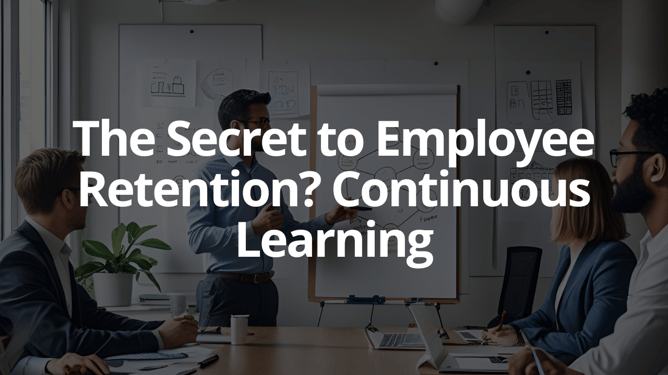Why Does Giving Developmental Feedback Feel So Difficult?

Here is a riddle to start things off…
What is a truly amazing gift that is impossible to wrap up in paper, stick a pretty bow on, or even attach a name tag to.
A hug? Yes… but that is not the answer I am looking for… also it is arguable as to whether that is ‘truly amazing’, especially if you approach them with spine shattering force.
Been a part of a few of them in the past and honestly, I think there was one in particular that altered the way I’ve walked ever since.
I am digressing ever so slightly here.
Anyway!
The answer I am looking for is… feedback!
Claps, high fives and pats on the back all around if you got that one right. I have to be honest though, it was not really a trick question. As long as you read the title, then the odds were stacked in your favour.
The reason however as to why feedback is such an incredible gift, is because of the monumental positive impact it has on the growth of another person. It awards people with personalised recommendations and direction for development, which provides them with greater perspective and clarity as to how they can move forwards.
Now, giving someone an unbelievable gift usually feels incredible. Like a sudden surge of satisfaction shooting through your body.
However, for many, giving feedback does not feel so good … especially when it is not considered to be ‘positive’.
Why is this though?
Well, I have listed some reasons here as to why giving feedback can be so damn difficult, and how you can adapt your approach to make it less so.
Negative Feedback
Let’s address a key fear straight away.
Feedback is like a battery right? It has a positive side and a negative one.
Nope. It doesn’t.
If you have always viewed feedback like this, then there is no wonder why it is a real Jekyll and Hyde affair… positive feeling super, and negative like you have just pressed the implode button on someone else’s confidence.
Unless you are some type of sociopath, giving unhelpful criticism feels dreadful. It is also not a gift at all, as it has no positive use. Like me giving you a swift knee to a tender area as a birthday present.
Rather than negative, feedback should be developmental.
This is not a slight nuance by the way, it is entirely different. Negative is the antonym of positive, whereas developmental guides to a way forward rather than just a crushing tirade of ‘not good enoughs’.
Now perhaps, you are seeing it as the gift that it really is, because you are either constructively telling someone how they excelled, or supportively directing them towards how they can excel.

I’m Unsure How to Deliver Developmental Feedback
So, as we have now outlined what developmental feedback is, you may still be wondering… How can I make my feedback not feel like criticism?
Well, there is a super simple model for just that. The BIO Model.
BIO stands for behaviour, impact, options… and is built to give well needed structure to your feedback conversations.
First off, you begin with the facts and the evidence. Behaviour is where you tell the person what you witnessed. This is the area which you are going to give them developmental feedback on.
Secondly, you say the impact of this behaviour. This could be the impact it has on their desired outcome.
Finally, options. This is where we explore how we could do things differently in order to experience different results in the future.
Therefore, you are covering all necessary bases. Not only giving someone sight in a development area that could be a blind spot, but also supporting them to review the best way forward.
At the bottom of this blog you will find a link to download an infographic of BIO, which we’ve created so you can easily refer back to this powerful tool the next time you’re providing feedback.
I Don’t Want to Make Someone Emotional
Occasionally, feedback can hit a nerve in people, especially when it is touching on a subject that someone could be rather sensitive about.
The truth is that there is sometimes no avoiding emotional situations.
Even when you approach a discussion with the greatest of intentions towards the person you are talking to, just the mention of the topic can trigger a reaction.
It can be easy for this to become uncomfortable causing you and them to want to avoid the awkwardness. However most things that are uncomfortable, as we have discussed right here on this blog before, are well worth doing.
Just remember, you are not doing it to create a soul shuddering awkward experience, you are doing this for their benefit and development which, even if they do not see straight away, they will discover in retrospect.
Recognise any emotions they are displaying and show understanding. Even if their emotions are negative and potentially upsetting or aggressive, stand firm and stay calm. Do not raise your emotions to the height of theirs, because that is when confrontation becomes a more likely possibility.
There’s also the potential that they may become defensive and shun responsibility towards the area that you are trying to support them with. In which case it could be helpful to ask them to share their perspective with you, why they see it the way that they do. Better that than to escalate the situation by telling them that they are wrong for thinking or feeling that way.
If someone feels emotional as a result of your developmental feedback, remember that this moment of real discomfort for them could be a huge differentiator for their growth.

I Don’t Want People To Not Like Me
CORRECTION… People will love you.
People will love you if you are always the person that is supporting the growth of others through having those conversations where you provide them with insightful and supportive feedback. They will in fact develop great amounts of respect and gratitude about your relationship with them.
This is because you are not a hole picker. You are not constantly jabbing them with criticisms and filling them with insecurities, instead you are empowering their developmental journey with relevant advice.
The key again is knowing how to give effective feedback, for instance by using the BIO model. Once you start and begin seeing how your feedback is empowering others and inspiring them to achieve more in their lives, then why would you be a figure of dislike?
……….
Feedback is about remembering the impact you can have in the long term. Telling someone that everything is great, and withholding valuable, constructive advice to avoid any potential awkwardness ticks short term boxes, however by doing this, you are not enabling people to reach their potential and to continue to grow.
By pro-actively delivering developmental feedback, you could become a crucial part of future success.
Now before heading off, have a look at our short video which recaps the topics in this blog. And don’t forget to download the BIO infographic below!
Thanks
Alex & The Excel Team
P.S. If you would like to discuss any of your learning & development challenges for 2021, call us on +44(0) 1628488 854.

About Excel Communications
Excel Communications is a learning and development consultancy based near London in the U.K. For more than 30 years; we have been collaborating with clients across the globe.
Partnering with Excel empowers you to evolve your people and business by fuelling a love for learning.
We work with you to create unforgettably, customised learning experiences to achieve your vision of success and growth, with tangible results.
View our case studies here.





